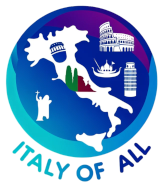The province of Viterbo, located in the Lazio region of central Italy, is renowned for its rich medieval heritage, stunning natural landscapes, and significant archaeological sites. Known as the “City of the Popes” due to its historical significance in the Papacy, Viterbo offers a captivating blend of history, culture, and natural beauty.
Geographically, Viterbo is characterized by its diverse landscapes that include the coastal plains of Tarquinia, the Cimini and Volsini mountains, and extensive volcanic lakes such as Lake Bolsena and Lake Vico. This varied topography supports a rich variety of flora and fauna, making it a popular destination for nature lovers and outdoor enthusiasts.
Historically, Viterbo’s origins are ancient, tracing back to the Etruscans, as evidenced by numerous archaeological sites throughout the province. During the medieval period, the city gained prominence when the Papal seat was temporarily relocated there, leading to the construction of several significant architectural works, including the Papal Palace. The well-preserved medieval town center, characterized by its ancient buildings and cobblestone streets, adds to the area’s historical allure.
Culturally, Viterbo is steeped in tradition, with numerous festivals and events that celebrate its historical and cultural heritage. One of the most famous is the “Macchina di Santa Rosa,” a vibrant festival where a 30-meter high tower is paraded through the streets by 100 men, an event that draws spectators from across the globe. The province is also known for its thermal springs, which have been popular since Roman times and continue to attract visitors seeking wellness treatments.
Cuisine in Viterbo reflects the agricultural richness of the region, featuring local produce like hazelnuts, chestnuts, and the renowned extra-virgin olive oil. Dishes such as “acquacotta” (a traditional soup made with vegetables and stale bread) and “lombrichelli” (handmade pasta) showcase the simplicity and flavor of local culinary traditions.
Economically, Viterbo’s economy is primarily based on agriculture, with significant contributions from olive oil production, nut farming, and viticulture. The area is also known for its production of high-quality marble and peperino, a local volcanic stone used in construction. Tourism plays a crucial role in the local economy, driven by the province’s historical sites, natural beauty, and thermal spas.
Despite challenges such as the need to modernize infrastructure and promote sustainable tourism, Viterbo is actively working towards enhancing its appeal as a cultural and wellness destination. Efforts to preserve its rich historical heritage while fostering economic development are key to the province’s strategy for future growth.
Overall, the province of Viterbo offers a compelling mix of natural beauty, deep historical roots, and vibrant cultural traditions, making it an integral part of Italy’s cultural and economic landscape. Its commitment to preserving its unique heritage while promoting sustainable development ensures a promising future for both residents and visitors.
Comuni in Viterbo Province:
- Bassano in Teverina
- Blera
- Barbarano Romano
- Acquapendente
- Bomarzo
- Bagnoregio
- Bassano Romano
- Bolsena
- Arlena di Castro
- Canepina
- Carbognano
- Canino
- Calcata
- Castel Sant’Elia
- Castiglione in Teverina
- Caprarola
- Corchiano
- Civita Castellana
- Fabrica di Roma
- Celleno
- Civitella d’Agliano
- Cellere
- Graffignano
- Lubriano
- GradoGradoli
- Ischia di Castro
- Gallese
- Latera
- Orte
- Onano
- Montalto di Castro
- ** Monte Romano
- ** Monterosi
- Nepi
- Montefiascone
- Oriolo Romano
- Ronciglione
- Piansano
- Proceno
- Soriano nel Cimino
- San Lorenzo Nuovo
- Valentano
- Vejano
- Viterbo
- Valle dell’Angelo
- Vignanello
- Tarquinia
- Sutri
- Vitorchiano
- Vasanello
- Villa San Giovanni in Tuscia
- Vallerano
- Tessennano
- Vetralla
